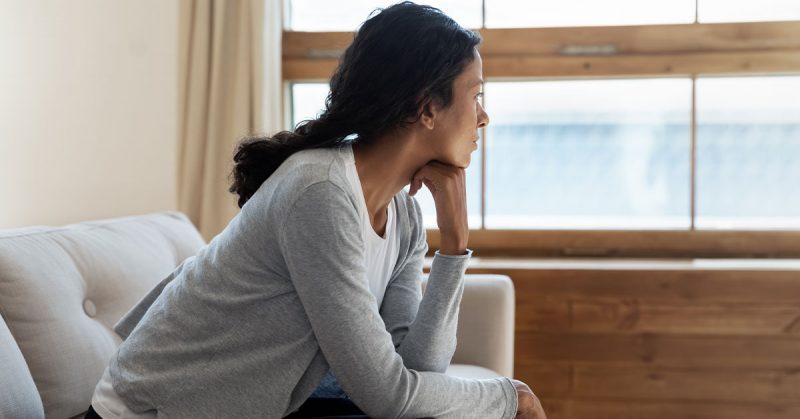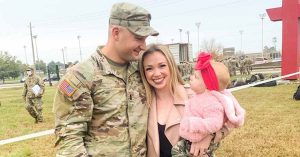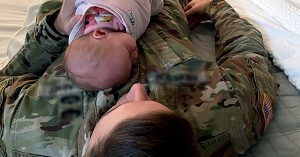Deployments are challenging for all military personnel and families. Deployments are not only tough, but for every one of us, the experience is different. My husband has been deployed since September. In my situation, we have no children, three cats, I am not working due to COVID-19 and I am a full-time graduate student. Some people have children, or other family members to care for. All of us are feeling the impact of a global pandemic and have been facing nationwide turmoil and uncertainty. How do we face this challenge and get through it? What steps can we take to make deployments a bit more manageable, especially these days?
Whether we have children or not, family around or not, I think loneliness is something that we all likely face, as our partners are not home with us. Dealing with the isolation brought on by COVID-19 does not help matters. Although we may not be able to gather like we used to, I have found it is important to lean on my friends during this time. A phone call can help, or even a text from someone asking how I’m doing can really make my day. And then of course there are the virtual get-togethers that, while different, have been a lifesaver for me. I have a chosen circle of friends that I am leaning on during this time. I need people who are not going to bring strife and drama to our friendship — and I believe we all have certain friends that thrive on drama! Curate your circle and set boundaries around your time, topics of conversation and who and what you will give your energy to.
Your military family is there for you and they want to be there for you. I am not one who naturally asks for help, even when I need it. This year, hurricane season was off the charts for Louisiana. I was facing prepping for these storms alone and you can bet that my husband’s unit reached out to me offering help and support. They also reached out over the holidays. If I had needed anything, I knew they would be there. I have great respect and gratitude for the military family and how we care for each other. They are a great source of comfort and support during a deployment. When in doubt, they will be there for you. Keep a contact list of people who are in your partner’s unit, answer any check-in calls or texts you receive from them and don’t forget to thank them for their help and care during this time.
Running the show on the home front without a partner can be a challenge. Doing all the daily tasks can be stressful and may leave you feeling like you have no downtime. Additionally, we may or may not talk to our partners about our stresses at home so as not to stress them and distract them from their mission. Self-care, compassion and grace are imperative. Take a walk, a bath, ask a friend to watch the kids, meditate, knit, bake — whatever brings you a sense of peace and care for yourself, take the time to make the time.
Utilize the mental health services offered through the military and the wellness services offered by Military OneSource. We do not have to do this alone. Hopefully, some of these strategies help; many of them you may already be aware of but sometimes it helps to hear it again.
Lastly, it is okay to not be okay during this time. This can be hard. While this blog may make it seem like I’ve got everything together during my husband’s deployment, truthfully, it has been up and down. Sometimes I need to acknowledge that this is hard and give myself some grace and maybe reach for help. Deployments are not easy, but they can be manageable. Stay healthy and safe and be kind to yourself.





I certainly agree that COVID has most definitely played a negative factor in dealing with a deployment. My husband has been deployed multiple times but that was before we were together, I certainly experienced the post deployment though. So experiencing it for the first time first hand with a 6 and 4 year old was challenging. Not only was I dealing with that, I was navigating through other very very stressful things, that not only affected my state of mind with my PTSD but also my husband having to worrying about me with what was going on with it at home.
Which brought guilt because I certainly didn’t want him to have to worry so much when his priority needs to be where he was and doing what he needed to do to make sure him and others come home safely. (some worry is normal but this was unnecessary) I connected with another military spouse more personally and it really helped me. It’s hard to explain but me having thoughts of being alone is different from actually deep in my body of feeling alone. Because my thoughts were positive- I have family and friends I could call and rely on, with no hesitation. But until I had those deep conversations and trudged through all the feelings and emotions, was when I made those feelings more positive to match my thoughts of knowing I had others there.
With technology of being able to video chat was definitely a positive factor for us especially with the kids.
A deployment throws everyone’s state of mind for a loop and it can be very challenging and difficult. Even more so your family is standing in the midst of chaos plus a pandemic on top of it. It’s really disheartening when you don’t feel you have full trust and support from others in the community as well, including those who are there to serve the public in crisis.